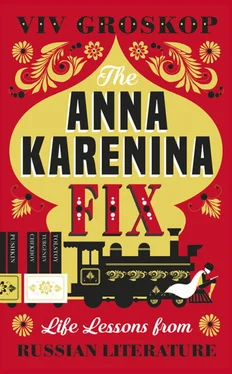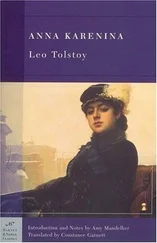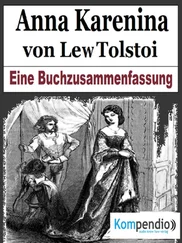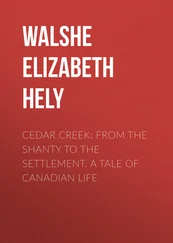A lot of the quotes directly contradict the messages of today’s self-help movement, which encourages us to devote ourselves passionately to the art of learning to love ourselves, or, at the very least, to move away from self-hate. In A Calendar of Wisdom , it’s the other way round. Pride and a love of the self are wrong; and if we are going to hate anyone, we should hate ourselves. (It literally says this. This sentiment is very typical of Tolstoy, who disliked doing anything pleasant, easy or fun.) Tolstoy prescribes an extreme, ascetic way of life, where lustful desires are especially dangerous and overeating is a sin because it denotes a lack of self-respect. Here are some of his other entries. On 4 June: ‘Because Christianity has become perverted, we now lead a life that has become worse than a pagan’s.’ Some of his edicts are painfully enigmatic. On 27 October: ‘The light remains the light, even though a blind man cannot see it.’ And anything relating to women is generally bad news. On 2 June: ‘A woman has a great responsibility: to give birth. But she doesn’t give birth to ideas – that is the responsibility of men.’
Tolstoy saw these quotes as a guide to life at a time of crisis: a gathering of ‘a circle of the best writers’ whose ideas would lead to salvation. As Roger Cockrell, translator of the latest edition of the Calendar in English, writes, Tolstoy’s overall aim is ‘to urge us all to strive, through unrelenting effort, for self-improvement’. I am not saying that Tolstoy is Oprah Winfrey with a beard. (Well, I am saying that a bit. And in any case, it’s just fun to think of the two of them together.) But he had an instinct for the sort of thinking that would become hugely popular a century later. And he had a strong conviction that the only way to fight back against the pressures of modern life was to define the right life lessons and apply them to yourself. This book follows the same impetus and aims to channel the Oprah side of Tolstoy. It’s what he would have wanted. Please, no overeating while reading it. Neither Oprah nor Tolstoy would like it.
The Russian classics are, admittedly, not the most obvious place to look for tips for a happier life. Russian literature is full of gloomy people wondering how on earth they have ended up in the appalling predicament in which they find themselves, looking around desperately for someone else to blame and then realizing that, in fact, they were right in the first place: life really is extremely inconvenient and annoying, and we are all just waiting to die. But they also teach us that it can, crucially, be survived. And it can be enjoyed, beautifully. While Tolstoy looked for answers in his time in didactic philosophy and religious texts, many of us seek comfort in reading about the lives of others, whether in fiction or non-fiction. The pithy sayings in The Calendar of Wisdom are useful, inspiring and sometimes even life-changing, but it is great works of literature that really change us as people, by showing us the inner lives of others and by revealing our common humanity. These works allow us to imagine different versions of ourselves, only without having to kill any old ladies ( Crime and Punishment ), have a friendly conversation with Satan on a park bench ( The Master and Margarita ) or throw ourselves under trains ( Anna Karenina ). Warning: there might be a few spoilers in this book, which is surely to be forgiven when most of these works have been around for well over a hundred years.
It’s no surprise that Tolstoy himself didn’t use fiction as a basis for the advice in his self-help book. We can’t expect Tolstoy to admit the usefulness of novels. In the latter part of his life, he had a huge spiritual crisis and all but renounced Anna Karenina and War and Peace as the writings of a sinful, frivolous fool. No wonder he turned to the Bible. But I want to argue the opposite of what Tolstoy came to believe. Philosophy and religious writings may have their place. And self-help aphorisms from the Greeks always bring solace. But it is in literature – whether novels, plays or poetry – that we really see who we are – and, perhaps even more importantly, who we don’t want to be.
But, first, an important disclaimer. This is not an intellectual book. It is not a work of primary research. It is not an academic thesis on Russian literature. It’s not supposed to be the last word in interpreting Russian literature. There will be no footnotes, although I’ve tried to make it as clear as possible where I’m quoting from, and there’s a detailed reading list at the back of the book. Instead it’s a guide to surviving life using some of the clues left in these great classics. It’s an exploration of the answers these writers found to life’s questions, big and small. And it’s a love letter to some favourite books which at one point helped me to find my identity and buoyed me up when I lost it again. It’s also about the times in life when you behave like an idiot, which, for some reason, for me have been remarkably frequent and don’t seem to be getting less so as I grow older.
Russian literature deserves more love letters written by total idiots. For too long it has belonged to very clever people who want to keep it to themselves. It’s just not true that in order to read the Russian classics you have to be part of some kind of secret society of special people. You definitely don’t have to know any Russian or have any plans to ever learn Russian, even though, with me, it was an obsession with studying Russian that pushed me towards these books. You don’t even need to know any Russian history, although you will certainly pick up a lot of it in passing. And you don’t have to fuss about whether you’ve got the right translation. Or whether you’re missing the entire point. Or whether you need to be sitting next to a samovar. It’s accessible to all of us.
I have two university degrees in Russian, and I spent a long time acquiring fluent Russian, using a combination of iron discipline and bison grass vodka. But even after all this, I am no expert. I am a shambling amateur who wants to encourage other shambling amateurs. These books have brought a lot of joy and hope to me, which is something I would never have expected and which endlessly surprises me, as I grew up in a house where we were very much not the sort of people who sat around saying, ‘But don’t you think Nikolai would have been better off with Sonya in War and Peace ?’ (Frankly, who would want to live in that household?) What I have learned about the Russians is that there is no need to be afraid of them. And there is certainly no need for them to be seen as uniquely ‘serious’ and ‘academic’, which we all know are synonyms for ‘dusty’ and ‘boring’.
It’s time to take all the doubt and fuss and snobbery and pretence out of this kind of reading. This book is a celebration of the art of reading on its own terms, which is always the most personal thing, and about giving yourself licence to read how you want to read, without feeling that there’s always someone else who knows more than you and that maybe you don’t really get it. However you get it, you’ve got it right. I say: read these classics in part if you can’t face the whole thing. Don’t be afraid not to finish or to come back years later. Read them slowly, without stressing over whether you’re understanding every detail. Read them in bed, read them on the bus, read them in the place that Vladimir Putin would call ‘the outhouse’. (He once gave a memorable speech in which he assured his people that Russia’s enemies were not safe anywhere, even in the outhouse. Please find yourself the safest possible outhouse, which Putin cannot know about, and treat yourself to a few pages of Three Sisters .)
Читать дальше












